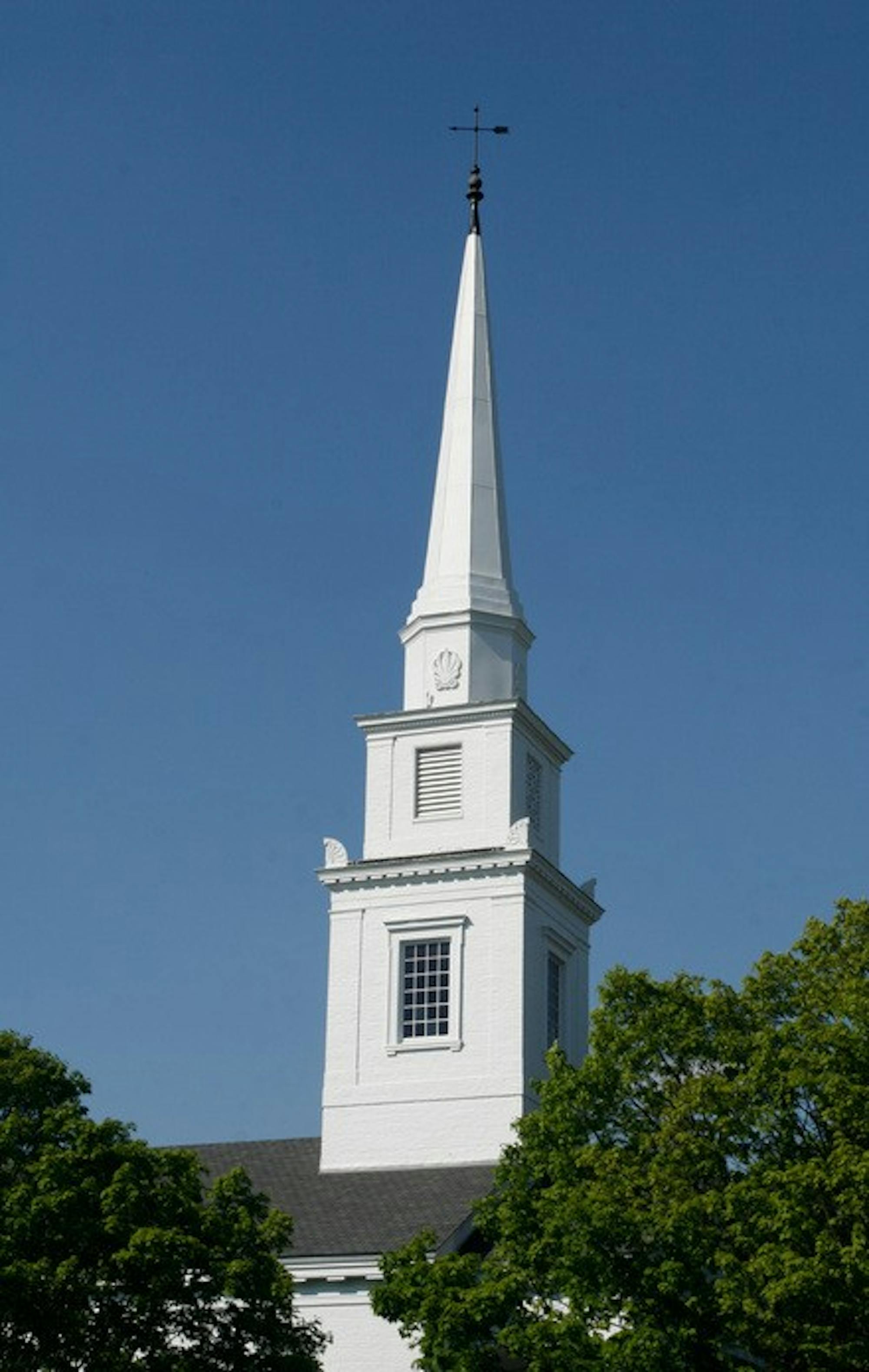This contract, the fourth between cell-phone carriers with the church, is estimated to raise the church's total income from cellular companies to $76,600 annually -- more than 13 percent of its annual $564,000 operating budget, according to Carla Bailey, a senior pastor at the church.
"The money that we receive from them helps us to carry out our ministry," she said.
In an interview, Bailey spoke of the Bible story of Jesus overturning the tables of money-changers in the temple, a parable which confronts the intersection of commercial enterprise and religion, but said this does not apply in this situation.
"Churches engage in all kinds of fundraising activities so that they can carry out their ministry," she said. "It's not even comparing apples and oranges; it is comparing apples and pencils."
In 2005, the church earned $51,400 in annual rent from three other contracts of this kind: one with Verizon Wireless and two others with YSC, Inc., commonly known as the Yankee Steeplejack Company, that brokers these types of deals between cellular companies and churches. YSC receives a portion of the rent for its services.
"Sites don't always get recognized and that's where we come in and market their site to a carrier," said John Earley '85, project manager for YSC, Inc.
The church also raises money by leasing indoor space to non-profit organizations including Dartmouth and several day care centers, which they began doing before leasing space to cell phone companies.
"We were teetering along every year with usually a budget shortfall, so it was a blessing to have that extra income from leasing," Smith said.
Since cell phone service providers are for-profit, however, the rent they pay is taxable. In 2006, the church paid $7203.75 in taxes to the town.
"We've recognized that this is not a non-profit organization and we have an obligation to pay taxes on this particular use of our building," Bailey said. "We are not trying to get away with pretending that this is a religious activity."
John McBride, a fourth-year Ph.D. candidate at the Thayer School of engineering and a student resident at the church, said that he has not heard fellow parishioners voice any problems with the antennae, which some originally feared would cause harmful radiation exposure.
"I've never heard it talked about in any capacity in any congregational meeting throughout the four years that I have been here," he said. "I really don't think that anyone cares at all; that's my guess."
The antennae are concealed in the interior of the steeple, while separate machines occupy 100 square feet for each antenna, Bailey estimated.
Cingular spokeswoman Kate MacKinnon said that 26 percent of its cell antennae nationally are considered "stealth," located on existing structures.
"We were scouting the Hanover area to increase our wireless coverage," MacKinnon said. "The church has a central location to that area."
Norwich Congregational Church, another member of the United Church of Christ denomination, has not been approached to host any antennae, Pastor Douglas Moore said. Every church, regardless of its spirituality, needs money to heat its facility in January and fund its necessities, he said.
"We are not rolling in dough," Moore said. "I really cannot imagine a surplus because I think that if we had one, we would give it away."
As a result of the cell phone antennae, the Church of Christ at Dartmouth College has more income for charitable causes, Bailey said. The church works for issues of social justice, involved with organizations like the Twin Pines Housing Trust that provides affordable housing in the Upper Valley.
The Cingular deal was approved by the Hanover Zoning Board on May 2 and is currently awaiting Hanover Building Inspector approval.
Dartmouth hosts one antenna on Fairchild Hall, across the street from Church of Christ, for the Unicel cellular service provider. The College receives $12,000 per year from Unicel, according to Rita Murdoch of the telephone and computing services department.
Dartmouth also leases roof space of the College-owned Hanover Inn to US Cellular for an antenna, whose lease is currently expiring and being re-negotiated, according to Robert Christensen, property manager for the College's real estate office.
"It's like free money," he said. "We're getting income from space that was previously considered useless or not rentable."




